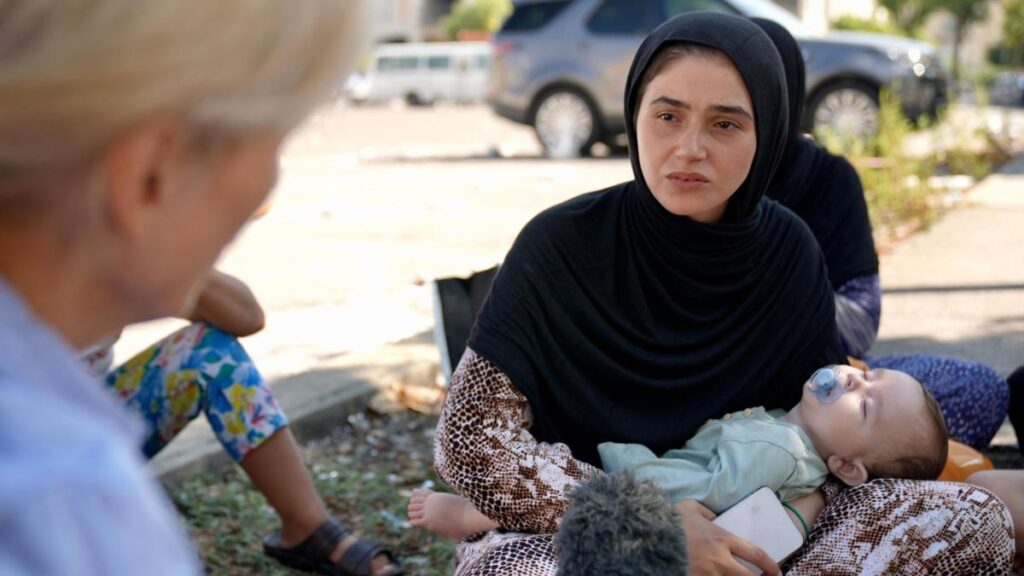Lebanon is a country that knows war all too well. And it doesn’t long for more.
The country still bears the scars of fifteen years of civil war between 1975 and 1990, and of the last war between Hezbollah and Israel in 2006.
But for some, including Beirut Governor Marwan Abboud, Israel’s recent escalation already feels worse.
In the past ten days, the country has suffered massive casualties from exploding pagers and walkie-talkies, a wave of assassinations of Hezbollah military commanders, devastating air strikes – and the use of bunker bombs in Beirut, which killed Hezbollah leader Hassan Nasrallah . on Friday.
“It is the worst moment the country has experienced,” said Abboud, who has no ties to Hezbollah.
“I feel sad. I am shocked by the large number of civilian casualties. I am also shocked by the silence of the international community – as if what is happening here means nothing.”
We spoke on the edge of Martyrs Square in Beirut, where many families slept in the open last night after fleeing Israeli attacks in the southern suburb of Dahieh, the heart of Hezbollah.
They remain in the square today, unsure where to turn for safety, like many in Lebanon.
When asked what he thought Israel’s plan was, the governor replied: “I don’t know, but Israel wants to kill and kill and kill. May God protect this country.”
His parting words were somber. “It’s the saddest day of my life,” he said, his voice heavy with emotion.
A few steps away we met an extended family, sitting on bare concrete, under the harsh morning sun.
Madina Mustafa Ali cradled her seven-month-old baby Amir on her lap and relived the trauma of Friday night.
“There was an explosion and we got scared, especially for the children. So we ran and came here. This is where we slept,” she said.
She told me that the family will remain in the square for the time being because they have nowhere else to go.
Others flee, some go to northern Lebanon. The south of the country is not an option; it is hit hard.
As we drove through the city, we saw families on the move, some crammed into cars with thin mattresses strapped to the roof, others piled onto motorcycles.
Here and there we saw people on foot with some belongings.
This is the new landscape of Beirut: boarded up shops, fewer people and more fear – especially since Nasrallah’s assassination was confirmed.
Plumes of dark smoke poured from Dahieh all day long. The Hezbollah stronghold looked very weakened today, with the two busiest streets largely deserted and many apartment buildings appearing empty.
We saw Hezbollah members guarding an airstrike site, one brandishing a Kalashnikov. A sign of tension, or of desperation, because the armed group normally does not show its weapons on the streets.
Hezbollah was not watching our every move today; they may have been more focused on the threat from above.
We also kept an eye on the sky to see where drones were.
At the site of an Israeli attack, we could still see smoke rising from the ruins of what appeared to be a factory. We were told it was making paper towels, and there was a lot of it shredded on the floor.
Lebanon has been declared a war zone, but the risks for the entire Middle East are increasing. And plenty of questions.
Will Hezbollah strike back hard against Israel? Is it possible?
Will Iran’s supporters intervene? So far they haven’t been in a hurry.
And will Tehran’s other regional allies – in Iraq, Syria and Yemen – become more involved?

